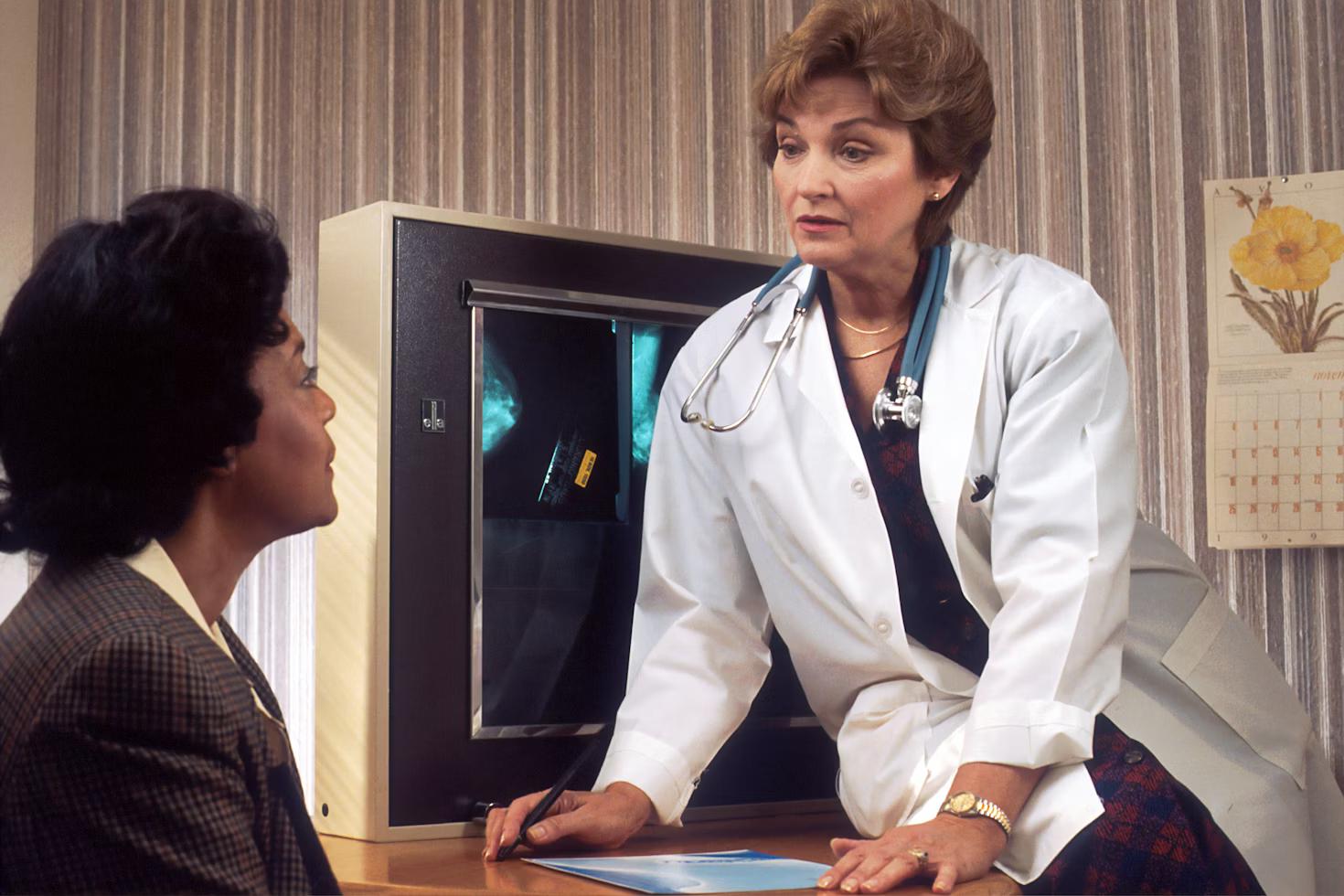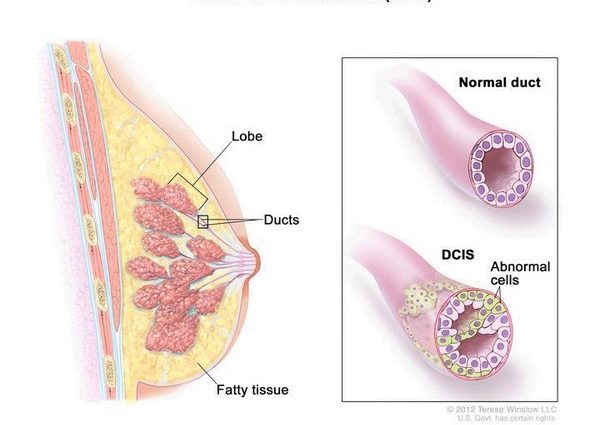Breast cancer remains one of the most significant health concerns worldwide, affecting millions of people every year. It is a complex disease with a multitude of risk factors, among which genetics plays a crucial role. Understanding the link between genetics and breast cancer risk is essential for early detection, prevention strategies, and personalized treatments.
This connection underscores the importance of considering both your family history and genetic predispositions when assessing your overall risk for developing breast cancer. By delving into the specifics of how genetics influences breast cancer risk, individuals can make informed decisions about their health and take proactive steps toward managing their risk factors.
Genetics and Breast Cancer Risk:
Breast cancer, a complex disease, results from a combination of genetic, environmental, and lifestyle factors. Genetics plays a pivotal role in determining an individual’s risk of developing breast cancer. This section explores the influence of genetics on breast cancer risk and the importance of understanding one’s genetic makeup.
The Role of Genetics in Breast Cancer Risk
Genetics refers to the hereditary information passed from parents to offspring, carried by genes in the DNA. Every individual inherits two copies of each gene – one from each parent. Sometimes, mutations (changes) in these genes can increase the risk of developing diseases, including breast cancer. While all cases of breast cancer are not hereditary, approximately 5-10% are directly linked to genetic mutations passed through families. Identifying these mutations can help in assessing an individual’s risk and guiding potential preventive measures.
Understanding BRCA1 and BRCA2 Gene Mutations
BRCA1 and BRCA2 are two genes well-known for their connection to breast cancer risk. They play a crucial role in DNA repair, helping to maintain the genetic material’s integrity. When these genes are mutated, they do not function correctly, leading to an increased risk of cell abnormalities and, eventually, cancer. Women with mutations in BRCA1 or BRCA2 have a significantly higher lifetime risk of developing breast cancer, as well as ovarian cancer, than those without such mutations.
Individuals with a BRCA1 or BRCA2 mutation have a 45-65% chance of developing breast cancer by age 70. These mutations can be inherited from either the mother’s or father’s side of the family. Testing for these genetic mutations is available, allowing for informed decisions about surveillance and preventive measures.
Family History and Breast Cancer Risk
Family history plays a significant role in assessing breast cancer risk. It is well-recognized that breast cancer can run in families, indicating a hereditary component to the disease. However, having a family history of breast cancer does not guarantee that an individual will develop the condition; it simply indicates an elevated risk.
Impact of Family History on Breast Cancer Risk
A family history of breast cancer can double a woman’s risk of developing the disease. This risk increases further if multiple family members are affected, especially if they were diagnosed at a young age. It’s not only the number of relatives but also their closeness of relation (mother, sister, daughter) and the age at diagnosis that influence risk levels.
Men can also inherit and pass on BRCA gene mutations, which can affect their own risk of breast cancer as well as the risk for their daughters and sons. Understanding one’s family history is crucial in evaluating breast cancer risk and deciding on appropriate preventive strategies.
Genetic Counseling and Testing for Breast Cancer Risk
For individuals with a strong family history of breast or ovarian cancer, or known genetic mutations that increase cancer risk, genetic counseling and testing can be vital tools. Genetic counseling provides personalized information and support, helping individuals understand the risks and the implications of genetic testing. If counseling suggests a high genetic risk, genetic testing can definitively determine the presence of mutations in BRCA1, BRCA2, or other genes related to breast cancer.
Other Factors to Consider in Family History:
When assessing the impact of family history on breast cancer risk, it is essential to consider other factors that may also influence risk, including:
- The age of family members at diagnosis
- Whether family members had cancer in one or both breasts
- The presence of breast cancer in male relatives
- The occurrence of other types of cancer in the family might indicate a hereditary cancer syndrome
By understanding these factors in the context of one’s family history, individuals and healthcare providers can make more informed decisions about risk assessment, surveillance, and preventive strategies against breast cancer.
Genetic Testing and Screening for Breast Cancer Risk:

Understanding your genetic risk for breast cancer can play a crucial role in early detection and prevention strategies. With advancements in medical science, genetic testing, and screening have become important tools for assessing breast cancer risk.
Types of Genetic Testing Available:
There are several types of genetic tests designed to evaluate the risk of breast cancer:
- BRCA1 and BRCA2 Gene Tests: These tests look for mutations in the BRCA1 and BRCA2 genes, which significantly increase the risk of breast and ovarian cancers.
- Multi-Gene Testing Panel: Beyond the well-known BRCA genes, this panel tests for mutations in other genes associated with breast cancer risk, such as PALB2, CHEK2, and ATM.
- Genomic Profiling: This broader approach analyzes multiple aspects of genetic health to identify potential risks for various types of cancers, including breast cancer.
Benefits and Limitations of Genetic Testing for Breast Cancer Risk:
The benefits of genetic testing for breast cancer risk include:
- Personalized Risk Assessment: Understanding your genetic makeup can provide a clearer picture of your risk, leading to personalized prevention or treatment plans.
- Informed Decision-Making: Knowledge about your genetic risk can guide important decisions, such as the timing of screenings or considering preventive surgeries.
However, there are limitations to consider:
- Not All-Inclusive: Genetic tests might not detect all mutations associated with breast cancer, meaning a negative result does not guarantee a no-risk status.
- Psychological Impact: Learning about one’s genetic risk can be emotionally challenging, leading to anxiety or distress.
Lifestyle Factors and Breast Cancer Risk:
Lifestyle choices can also significantly influence the risk of developing breast cancer. While genetics play a crucial role, incorporating healthy habits can have a significant impact on reducing breast cancer risks.
Diet and Exercise Recommendations:
Adopting a balanced diet and maintaining an active lifestyle are key strategies for breast cancer prevention:
- Diet: Emphasize fruits, vegetables, whole grains, and lean proteins. Limiting processed foods and red meats can also reduce risk.
- Exercise: Regular physical activity, at least 150 minutes of moderate-intensity or 75 minutes of vigorous-intensity exercise each week, is recommended to lower cancer risk.
Alcohol Consumption and Breast Cancer Risk
There is a well-established link between alcohol consumption and an increased risk of breast cancer. The risk increases with the amount of alcohol consumed:
- Limit alcohol intake to no more than one drink per day for women to help reduce breast cancer risk.
Hormone Replacement Therapy and Breast Cancer Risk:
Hormone Replacement Therapy (HRT), particularly those involving a combination of estrogen and progestin, can increase the risk of breast cancer:
- Short-Term Use: Using HRT for short periods may carry less risk, but it’s essential to discuss the benefits and risks with your healthcare provider.
- Alternatives: For managing menopausal symptoms, consider alternative treatments and discuss these options with your healthcare professional to avoid or minimize the use of HRT when possible.
Understanding the interplay between genetics and lifestyle factors in breast cancer risk can empower individuals to take proactive measures for prevention and early detection. Genetic testing provides vital information about one’s susceptibility to breast cancer, but it also comes with its set of challenges and limitations. On the lifestyle front, maintaining a healthy diet, engaging in regular physical activity, moderating alcohol consumption, and cautiously approaching hormone replacement therapy can contribute significantly to reducing breast cancer risk. While genetics cannot be changed, embracing a healthy lifestyle offers a powerful means of risk management and prevention.
Conclusion and Recommendations:
Understanding the genetic aspects of breast cancer can empower individuals to make informed decisions about their health. While genetics is a significant factor, it’s crucial to remember that it’s only part of the story when it comes to cancer risk. Aside from genetic predisposition, lifestyle choices, and environmental factors also play critical roles. Here are some recommendations for those concerned about their breast cancer risk:
- Genetic Testing: If you have a strong family history of breast cancer, consider genetic counseling and testing to determine your risk level. This process can provide valuable information but should be discussed thoroughly with a healthcare provider to weigh the benefits and potential emotional implications.
- Regular Screenings: Adhering to recommended breast cancer screening guidelines is critical. Mammograms can detect cancer early when it’s most treatable. Discuss with your doctor the appropriate age and frequency for these screenings, especially if you’re at higher risk.
- Lifestyle Adjustments: Adopt a healthy lifestyle to reduce cancer risk. This includes maintaining a healthy weight, staying physically active, limiting alcohol consumption, not smoking, and eating a balanced diet rich in fruits and vegetables.
- Stay Informed: Keep up-to-date with the latest research on breast cancer prevention and treatment. Guidelines and recommendations can change as new information becomes available.
- Support Networks: For those with a high genetic risk, connecting with support groups and networks can offer emotional support and advice on dealing with the anxiety that may come with this knowledge.
In conclusion, while genetics plays a significant role in breast cancer risk, being proactive about your health through regular screenings, lifestyle choices, and staying informed can help you manage that risk. Remember, no matter your genetic predisposition, there are steps you can take to care for your overall health and well-being.
